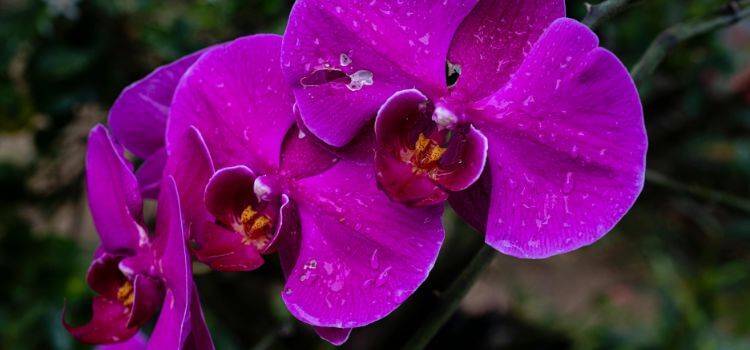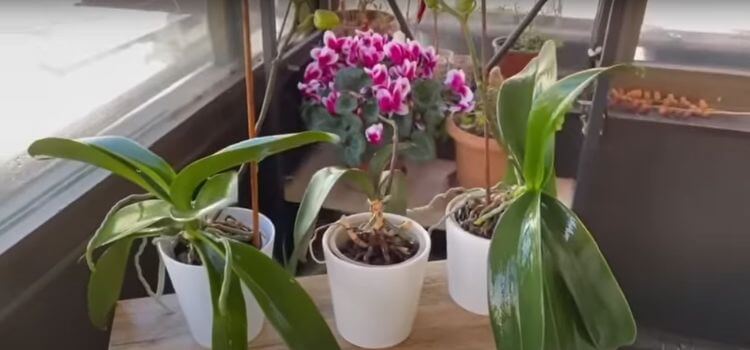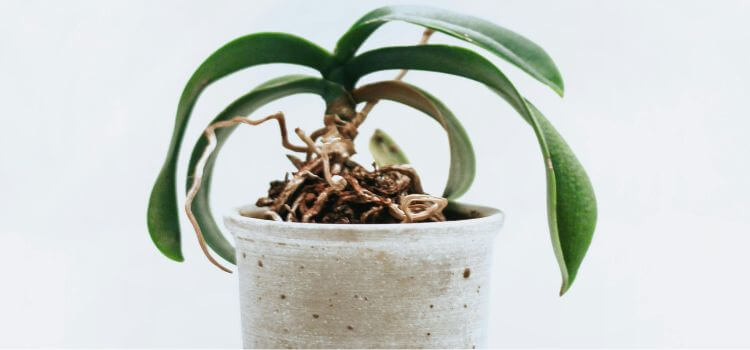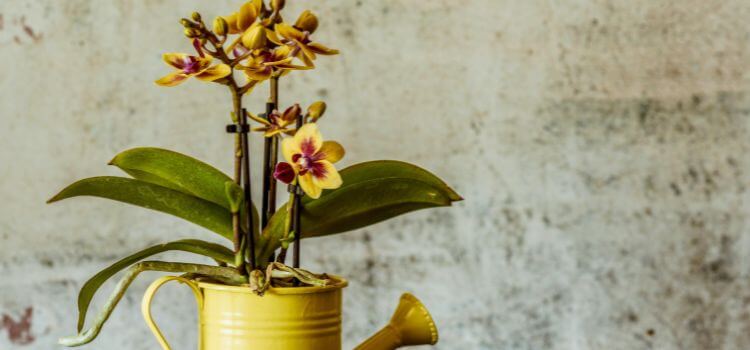As an Amazon Associate, I earn from qualifying purchases.
Yes, you can use orchid fertilizer on other plants. It generally provides the essential nutrients needed for various houseplants.
Orchid fertilizer is tailored to the specific needs of orchids, which favour a balance of nitrogen, phosphorus, and potassium, along with trace elements and minerals beneficial to many plants. Gardeners often find that using this specialized fertilizer for other plants can promote healthy growth and flowering.
Since orchids require a diluted fertilizer solution, applying the same to other plants helps prevent over-fertilization, one of the common issues in plant care.

Types Of Fertilizers
Understanding the right fertilizer for your plants marks the difference between a thriving garden and a struggling one. Let’s explore the types of fertilizers and their specific uses for optimal plant health.
Orchid Fertilizer
Orchid fertilizer is a tailored solution for the unique needs of these unfamiliar plants. It’s like a perfectly balanced meal for these beauties, often containing higher levels of nitrogen, phosphorus, and potassium. These specialized fertilizers ensure the right micronutrients reach these plants, which thrive in conditions distinct from typical houseplants.
- Balanced ratios: Typically marked as 20-20-20, signalling an equal part of each nutrient.
- Urea-free options: Orchids prefer it as some can’t utilize urea efficiently.
- Micronutrients: Calcium and magnesium are necessary for optimal orchid health.
General Plant Fertilizer
General plant fertilizers are a versatile solution, catering to a wide range of plants, from vegetables to ornamentals. These formulations provide a comprehensive nutrient mix, ensuring that most plants receive the necessary elements to grow strong and healthy.
- All-purpose mix: Common ratios include 10-10-10 or 5-5-5, suitable for many plants.
- Variety of forms: Available in granular, liquid, and slow-release types.
- Specific enhancements: Some fertilizers may have additives for flowering or root development.
Note: Using orchid fertilizer on other plants is possible, but the unique ratios may only be ideal for some types. It’s best to match the fertilizer with each plant’s specific requirements for a lush garden.
Key Differences
When exploring the garden, we often ask: Can orchid fertilizer benefit other plants? Understanding the key differences between fertilizers emphasizes plants’ unique needs.
Nutrient Composition
Fertilizers are like multivitamins for plants, each with a tailored blend for growth and health. Orchid fertilizers often have a unique mix suited explicitly to their development.
| Nutrient | Orchid Fertilizer | General Fertilizer |
|---|---|---|
| Nitrogen (N) | Lower | Varies |
| Phosphorus (P) | Medium | Varies |
| Potassium (K) | Higher | Varies |
Fertilizers provide these nutrients in different ratios. For orchids, the ideal N-P-K ratio is commonly 20-10-20. This supports their distinct flowering and growth patterns.
Specialized Needs Of Orchids
Orchids captivate with their unfamiliar blooms. They thrive on specific care that differs from other plants. This includes their diet, as orchids demand certain elements to flourish.
This specialized nutrient uptake means that orchid fertilizer may not be the best fit for other plant types. Prioritize fertilizers that align with your plant’s particular needs.

Can You Use Orchid Fertilizer On Other Plants
The impact of orchid fertilizer on other plants stirs curiosity among gardeners. Orchid fertilizer is unique but surprisingly versatile. Understanding the effects is key to nurturing a vibrant garden.
Possible Benefits
Using orchid fertilizer on different plants can yield unexpected advantages:
- Enhanced Growth Patterns: Rich in nutrients, it can promote growth in similar flora.
- Flowering Aid: It potentially boosts blooming in other flowering species.
Potential Risks
However, what’s good for orchids might only suit some. Here are some risks to consider:
- Nutrient Imbalance: Orchid-specific nutrients might disrupt other plants’ balance.
- Root Damage: Orchid fertilizers can be too strong, causing harm.
Alternative Solutions
Should you use orchid fertilizer on other plants? Plants need tailored care. But there’s flexibility. Let’s dive into alternative solutions to conventional fertilizers. These can be safe and effective for a variety of plants.
Organic Fertilizers
Organic fertilizers present a planet-friendly choice. They release nutrients slowly. This is good for plant growth over time. You can find ready-made mixes or single-ingredient options. Here are some common types:
- Bone meal: Rich in phosphorus, it promotes strong root development.
- Blood meal: A nitrogen source, it’s great for leafy growth.
- Fish emulsion: Provides a balanced mix of nutrients.
- Seaweed: Full of micro-nutrients and minerals.
- Compost: Improves soil structure and fertility.
Homemade Fertilizer Options
Creating homemade fertilizers can be both fun and practical. It’s budget-friendly and reduces waste. Here are some easy recipes:
| Ingredient | Nutrient | Benefit |
|---|---|---|
| Eggshells | Calcium | Strengthens plant cell walls |
| Banana peels | Potassium | Boosts flower and fruit production |
| Coffee grounds | Nitrogen | Enriches leaf growth |
| Tea leaves | Acidic content | Perfect for acid-loving plants |
Try soaking these ingredients in water. Use the water to feed plants. Blend dry ingredients directly into the soil. Always test soil and observe plant responses. Adjust methods accordingly.

Frequently Asked Questions on Can You Use Orchid Fertilizer On Other Plants?
Orchid feed can benefit other plants, especially those requiring similar nutrients, such as bromeliads and African violets. However, to avoid nutrient imbalances, use it sparingly on plants with different feeding needs.
Yes, you can use orchid bloom booster on other flowering plants to encourage blossoming, as it is high in phosphorus, which promotes blooms.
Yes, you can use orchid food spikes on other plants, but ensure their nutrient requirements match orchids’ for optimal growth.
Miracle-Gro Orchid Food is formulated for orchids, but it’s safe for all acid-loving plants. Use it on ferns and bromeliads to promote healthy growth.
Conclusion
Orchid fertilizer isn’t just for unfamiliar blooms. Many garden varieties thrive with this nutrient-rich mix. Embrace the versatility, but tread wisely. Each plant’s needs are unique, and so should its feed. Happy gardening, and let your green friends flourish with the right care!

